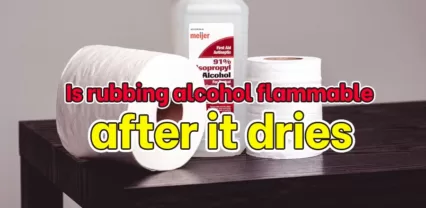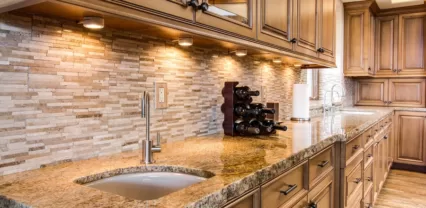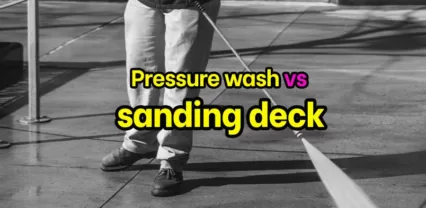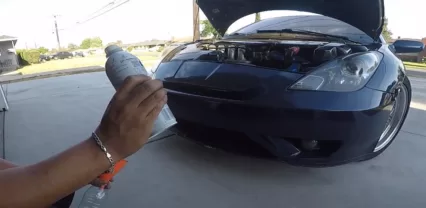Paving for driveways, garden, park, outdoor space, walkways, and more has always been an excellent choice not only due to their classic appearance but also requiring less maintenance. However, despite choosing professionals to install pavers, unwanted stains can occur anytime.
The unwanted stains can ruin the overall beauty of pavers which in my opinion, isn’t a good thing at all. If so much effort is put up into deciding the color, the quality, and the shape of the paver along with spending money on its installation, what’s wrong with putting some effort into its cleaning as well?
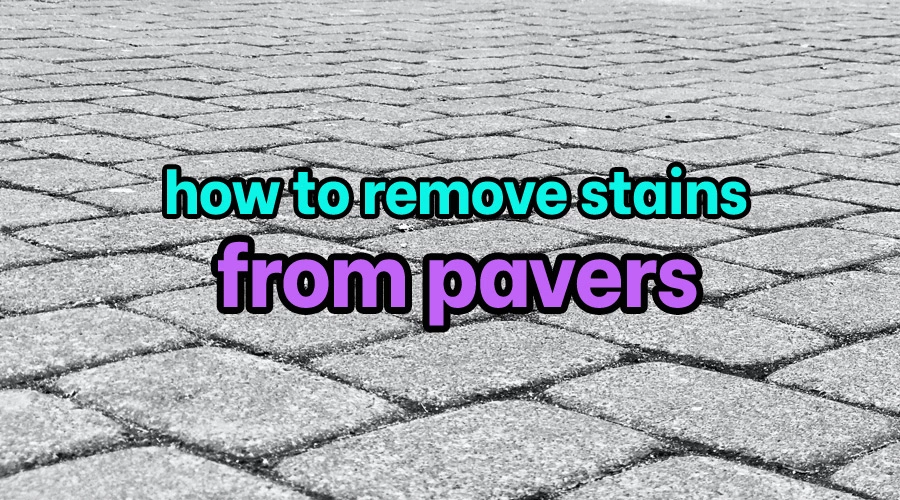
In this article, we will be discussing how to remove stains from pavers following simple techniques.
What is the best way to clean pavers
If you’re someone suffering from dirty and old-looking pavers, instead of installing new ones, consider cleaning them instead. Why waste so much money and effort on new ones, when you can make the old ones look new again?
Pavers have to look good regardless of the circumstances. You wouldn’t want them to look bad so they don’t put a negative impression of your house in front of your guests.
Following are the ways you can apply to clean pavers.
- Pressure washing: Pressure washing helps remove tough stains from your pavers. All marks (grass, paint, spills, dirt, leaves, etc.) leave stains on pavers but can be removed with pressure washing.
- Simple Green: Simple green is a product without chemicals so its usage will not discolor, damage, or leave spots on your pavers.
- Dish Soap: A good mixture of both soap and water is a great way of removing stains and also keeping the paver color intact
- White vinegar: A mixture of both white vinegar and water is yet another great way of removing stains from pavers. Simply let them sit for at least an hour on the affected area, then rinse off and see the magic.
- Broom: Before applying any cleaner, remove dust and dirt using a broom. Do this regularly.
However, keep in mind maintaining your pavers will not only let them last longer, but are easier to clean, and appear new and attractive. So make sure to both clean and maintain them regularly
Can you pressure wash brick pavers
Yes! Cleaning brick pavers with pressure wash ain’t a problem!! But only if it’s done carefully. When it comes to pressure washing, it’s recommended to put it into the professional’s hands so that we as amateurs don’t cause any damage to our pavers. Follow the guidelines below:
- Before pressure washing, sweep away all the dirt, dust, and leaves.
- When doing pressure wash, make sure to use a pressure of PSI 1000-1500.
- Do not apply pressure low than PSI 1000, as it will give you unsatisfactory results.
- Do not apply pressure more than PSI 1500, as it will damage your paver’s upper layer. If there are any cracks, the pressure will extend it, causing further damage.
- Choose a rotating nozzle to remove stains from every angle.
- Apply a sealant coat after pressure washing. It helps extend paver’s life.
And that’s it! Now you’re good to go!
Can you clean pavers with vinegar
Yes absolutely! But the vinegar being used should be white vinegar. White vinegar combined with water is an excellent cleaning solution for almost anything containing stubborn stains and dirt. Not only is it cheap, but also worthwhile! And the products are easily available within the market.
Simply, just prepare a solution mixing white vinegar with water and put it aside. Then, sweep off the dirt on the pavers. Afterward, soak up the affected areas with the solution and let it sit for about an hour. You can also spray the solution on the affected area using a gardener spray.
Once that’s done, now scrub off the area through an outdoor scrub brush using soap and water mixture. And there! The job’s done!
Can you clean pavers with bleach
Bleach is a powerful element. It can do wonders in terms of cleaning pavers however if applied directly, chances are it might damage or discolor your pavers, making them appear terrible than before. While applying beach, you need to be very careful in the way you’re applying. Since the element is powerful, it can clean the stains of grass, leaves, dirt, algae, weeds, and even moss. There is no need for power washing afterward as the chemical will do the trick real quick.
To clean your pavers with bleach, start by doing the following:
- Prepare a cleaning solution of ½ cup bleach diluted in 1 qt (0.95 Liter) of warm water.
- Add 1 tsp of liquid dish soap to enhance bleach cleaning ability.
- Take a gardener spray and pour the cleaning solution into it.
- Spray the solution on the affected area. Keep spraying until the area is fully soaked
- Let the solution sit for 20 minutes.
- Afterward, began scrubbing using an outdoor scrub brush. Make sure to not use a “metal bristled” brush as it will cause scratches on the paver’s surface.
- Rinse both the dirt and solution off with water.
And that’s it. Simple, yet convenient. Make sure to never apply the solution directly. You must mix it in water before applying.
Can you clean pavers with chlorine
Yes. You can pavers with chlorine as it’s highly effective on pavers with stains of moss, grass, leaves, mildew, and mold. To clean the pavers with chorine, prepare a cleaning solution by mixing one part (10%) of chlorine with 9 parts (90%) of water.
Then add the mixture to a garden spray. Now start spraying on the pavers. Let the mixture sit on pavers for 10-15 minutes. Afterward, scrub pavers using an outdoor scrub brush. In the end, rinse pavers and let them dry.
Can you clean pavers with muriatic acid
No. Muriatic acid is extremely powerful and can do serious damage to your pavers. It might not cause long-term damage however, it can certainly cause your pavers to appear duller and white (discolored). If you still want to use muriatic acid, make sure what type of pavers are you going to use it on?
For example, if the pavers are made of concrete, the acid will do some serious damage to it, leading you towards installing new ones.
Can you clean pavers with oxiclean
An oxygen bleach, known as OxiClean aids in the removal of dirt and stains caused by moss, fungus, mildew, and algae from outdoor surfaces without harming pavers and patios. It’s a safer alternative. Dilute OxiClean with water and spray on the patio before rinsing.
To remove stubborn stains, prepare a paste of oxygen bleach and water, having a consistency like that of peanut butter. Allow about an hour for it to rest on the affected area and then rinse it off. There is no need for scrubbing since the bleach will do its job well.
Can you clean pavers with polymeric sand
Yes but there are certain limitations to it. For example, polymeric sand can be applied in pavers with at least 14″ deep and 14″ broad false joints. However, extreme caution must be taken while removing extra dust off pavers, especially if it is used as a leaf blower. If the blower is not properly oriented, it is quite simple for the sand to blast out of the joints even before you know it.
How to remove oil stains from pavers
Paving stone driveways are preferred over asphalt or concrete because of their elegant appearance as well as the lower maintenance requirements. Even if you hire a landscaping firm or a paving professional to lay the pavers, your driveway may eventually develop unpleasant stains, particularly of oil. So how to remove it?
- To remove the fresh added grease or oil on pavers, dab the affected areas with a clean cloth or paper towels and don’t rub them in. Most oil stains on pavers can be removed with dish soap or detergent.
- Apply the soap directly on the stain and let for 20-30 minutes.
- After that, use a nylon-bristle brush to clean the area and rinse with lukewarm water to finish the process.
- For best results for old oil stains, soak up as much oil as you can from pavers before you attempt to remove stains after they’ve dried and absorbed.
- Allow granular products to remain on the affected area for about six hours. Take a broom and sweep up the debris. For newly deposited stains, follow the steps outlined above.
And there you have it! A way to remove grease or oil from pavers.
How to remove leaf stains from pavers
There’s hardly anything worse than having your beautiful pavers ruined by fallen leaves. Do I need to use bleach on it? Is it time to replace the pavers? All of these thoughts can come into your head.
Leaf stains happen when dead or falling leaves from plants or trees land on your driveway, front entry, or patio pavers, staining them. The good news is that leaf stains can be removed.
Dish soap or a solution like Simple Green Oxy, coupled with warm water and a stiff bristle brush, can effectively clean the surface. When using a pressure washer, be cautious not to dislodge the joint sand and never pressure wash the surface directly. This may cause harm to the surface if done incorrectly.
How to remove bird poop stains from pavers
Since birds can rest on wires or ledges above pavers while no one is looking, you may find a lot of bird poop on your pavers. Birds’ poo can cause stains due to the berries they’ve eaten, on your pavers.
- To remove bird poop stains, simply apply cold water to the paver area and let it soak for a few minutes.
- Scrub the bird poop stain away using a little hand brush. Fresh droppings/poop or droppings that haven’t been on the paver for long might only need to be scrubbed away with cold water and a brush.
How to remove hard water stains from pavers
Garden hoses and sprinklers use hard water, which leaves unattractive water stains on brick paver driveways and pathways.
White vinegar can be used to safely erase water stains without causing any further damage. Because vinegar has a naturally acidic character, it gently removes stains without damaging the upper layer of pavers.
Here are the steps you should follow:
- With a push brush, sweep away any dirt or debris from the brick pavers.
- Fill a bucket halfway with water and the other half with white vinegar. Add 1 tbsp mild dish soap to the mixture and mix well.
- Pour the mixture into a plastic garden sprayer after thoroughly stirring the ingredients.
- Set up the sprayer and use it to saturate the white vinegar solution on the brick pavers. Allow the mixture to sit for ten minutes.
- Use a plastic scrub brush to work the mixture into any tough water stains. Using the yard hose, rinse the vinegar solution away.
And that’s it, now you’re pavers will look good as new.
If you are searching for how to remove tannin stains from pavers tutorial, please refer to our previous tannin cleaning secret cleaning recipe for more information.
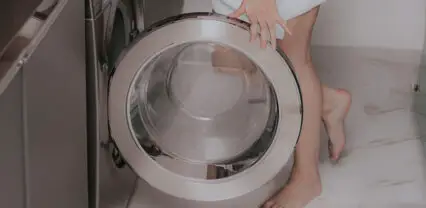
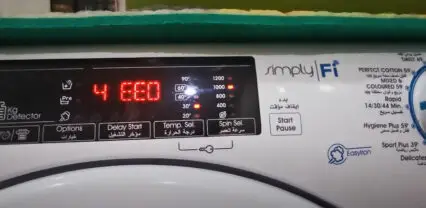
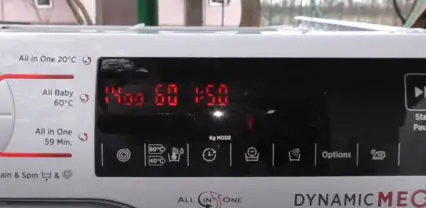
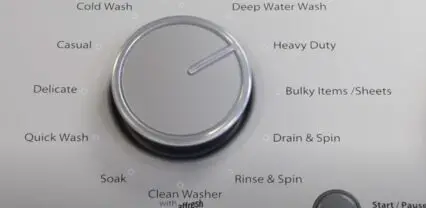


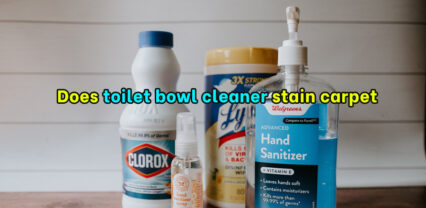
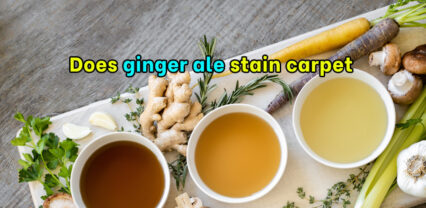
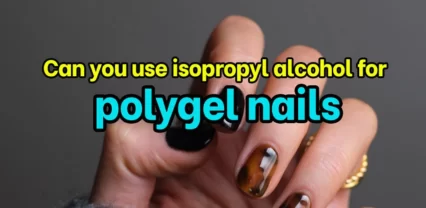
![Will rubbing alcohol ruin furniture [Truth Exposed]](https://www.sanitisationsingapore.com/wp-content/uploads/2021/09/Will-rubbing-alcohol-ruin-furniture-426x208.webp)
